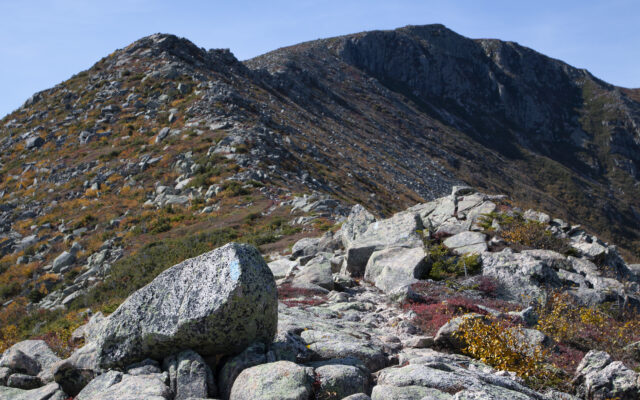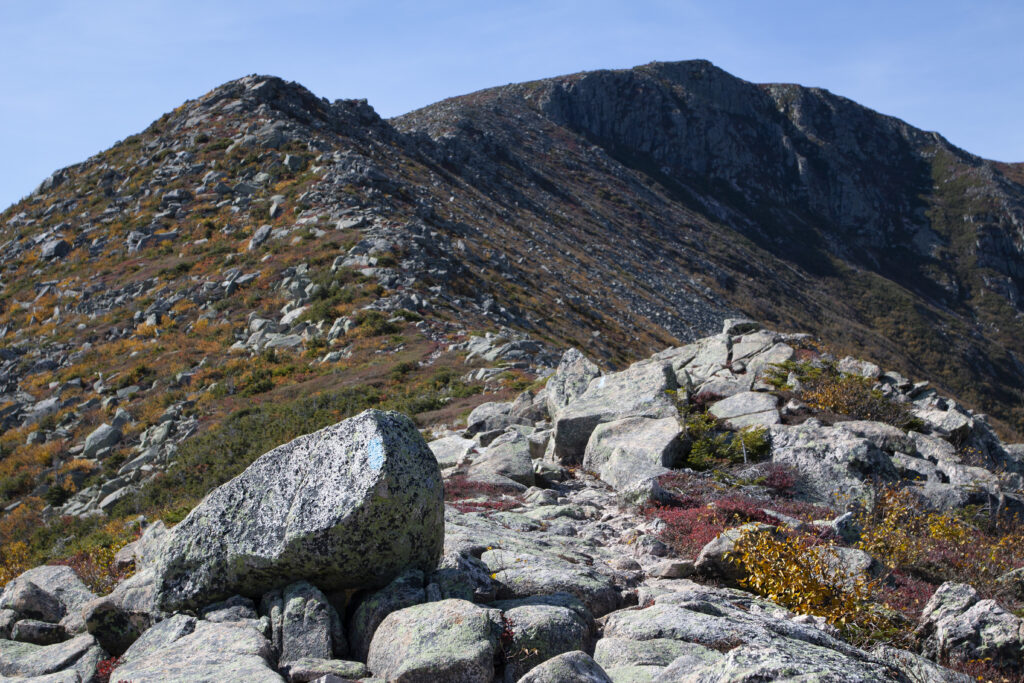
How to not be a jerk when you’re hiking in Maine
By Aislinn Sarnacki
Hiking is an activity with few rules and an abundance of freedom. As the popular saying goes, “Hike your own hike.” Yet there is such a thing as trail etiquette, a code of behavior that will mark you as a polite or rude hiker.
You won’t find this code written at the trailhead. It’s something that’s learned over time through experience, contemplation and maybe a wagged finger or two.
Trail etiquette is chiefly about showing respect. That means respect for fellow hikers but also respect for wildlife, landowners, trail maintainers and the environment as a whole.
Still, some elements of hiking etiquette move beyond common sense and into the realm of tradition. Here’s a list of trail etiquette guidelines that I’ve learned over the past decade or so, passed on to me from experienced hikers.
— Be cognizant of the amount of noise you’re making, especially at overlooks, summits and other places where people gather. Shouting, talking on the phone, singing and other loud noises can detract from the experiences of others. I once shared a summit with a man who was talking loudly on his phone on a business call. We were the only two people there. It was frustrating, to say the least.

HIKING KATAHDIN – Hamlin Ridge is a long ridge on Katahdin between the Great Basin and North Basin.
— Don’t hog overlooks, summit signs, benches and other trail highlights and rest stops. While you should certainly enjoy those places, keep in mind that others would like to relish them, too.
– I’ve always been told that when passing a hiker going in the opposite direction, the person hiking uphill usually gets right of way. However, this doesn’t always make sense. Assess each situation. If it makes more sense for you to step off trail and let the person pass, do so.
— If you must step off trail, try to do so on a durable surface such as a rock. Stay on trail as much as possible to avoid trampling plants and causing erosion.
— If someone is carrying a noticeably greater burden than you and is passing you, step out of the way. For example, if you’re hiking with a small day pack and you come across someone who is camping and is carrying a large pack, move aside for them.
— Lost items. I’ve seen hikers deal with lost items in a few different ways. If it’s something small like a hat or a glove, hikers will sometimes hang it from a tree branch so it’s easier to find. Another common practice is to bring the item to the trail’s parking area to leave on the trailhead sign or kiosk. For high-value items, such as phones or cameras, contact the trail manager or landowner for guidance. They may have a lost-and-found bin.
— Do not tamper with rock piles, also known as “cairns,” that mark the trail. Do not destroy them or build new ones. This may cause someone to become lost.
— “Trail magic.” If hiking on a long-distance trail such as the Appalachian Trail, consider offering unopened drinks, food and other useful items to long-distance hikers. This is known as “trail magic.”
— Leave no trace. Do your best to leave the environment how you found it, or better than you found it, by picking up trash. Don’t carve on tree trunks or otherwise leave a mark on the landscape. Don’t litter.
— Don’t collect things from the environment such as rocks or wildflowers. Leave them for other trail users to view and enjoy. Instead, consider taking photographs.
– Leave No Trace has guidelines for going to the bathroom in the woods. Find a place off trail at least 200 feet away from water sources. Bury poop in a hole that’s 6 to 8 inches deep, and do not leave behind any toilet paper. (Instead, carry a baggy you can put used toilet paper in.) Trail maintainers have a name for crumpled up toilet paper left in the woods: white roses.
— Follow property rules about dogs. Do not allow your dog to approach other hikers uninvited.
— Say hello when passing a fellow hiker. If you’re looking to talk more, pay attention to how the person responds. Often people are looking to spend some quiet time in nature and a lengthy conversation may not be welcome.
— If you pass a hiker who appears to need help, offer assistance. I have encountered hikers who have run out of water, and I was able to provide that to them.
— Keep your distance from wildlife, and certainly do not chase it.
I hope these tips for hiking etiquette have given you some food for thought. It’s far from a complete list, so please let me know if you have anything to add or if there’s anything you disagree with. I’m interested to learn new tidbits about trail etiquette and how it might differ from place to place.